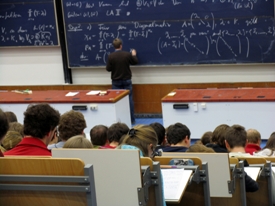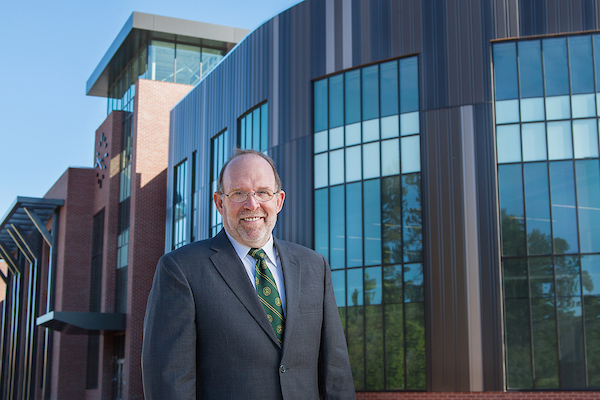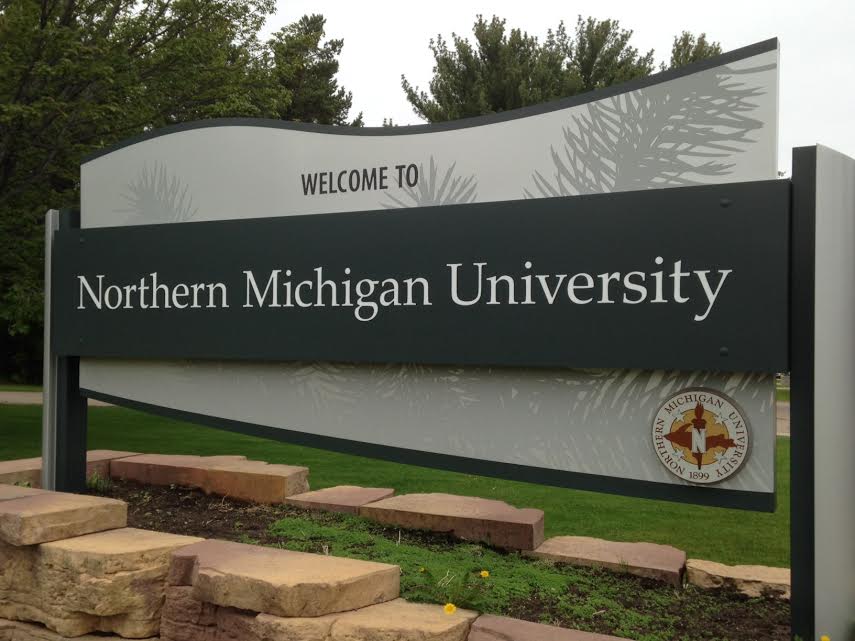NMU PRESIDENT FRITZ Erickson knows, like all educators, that there is some risk to resuming school this fall. It could create a health crisis. It wouldn’t be good for public relations, either.
“We’ll be bringing 8000 people here on campus and we don’t want to be the source of a significant spread of COVID,” he says.
The students start returning to campus on August 8th, classes start on August 17th, and the university has a plan ready to go from the time the students arrive. Their very first responsibility will be to take a COVID test to be administered at the Northern Center. All students, staff, and professors. No exceptions.
“We should be getting results within 24-48 hours, I’m told,” Erickson says, “and then we’ll know immediately if we have a problem.”
And if students are diagnosed with the virus, then what? Pretty simple. They’ll be sent to Spalding Hall which will be set up throughout the semester as the quarantine/isolation residence hall. They’ll stay there, with extra precautions but still getting their education, until they are deemed safe to return to the rest of the campus.
Move-in days at the residence halls will be much more structured than in the past. Only limited numbers of students moving in at one time, no family members allowed in the rooms themselves.
Dining halls, like last semester, will be more restricted. Fewer tables and chairs, more social distancing, and the likelihood that most students will take their food to go.
Cleaning will be constant campuswide throughout the semester in the dining areas, the residences, and the classrooms.
There likely will be fewer students on campus this semester–a result of the COVID scare.
“As of now, we’re planning on enrollment being down about four percent from last year but you never know about ‘summer melt,'” Erickson says. “There are so many unknowns.”
“Summer melt” is the tendency of a certain number of students every summer to back off of their announced intention to attend school in the fall. That number likely will increase this fall.
The class structure will be different this year, and varied. Erickson estimates that maybe 85% of the classes will have live, face-to-face time with the professors, but the classes may be broken up into smaller groups, larger classrooms will be used to allow for greater spacing, many classes will have online and Zoom components, and some classes may be strictly online. The professors will make those decisions.

NMU students will gather in smaller classes and have more online classes this fall.
And some professors will teach online exclusively because of their own health concerns.
Fall sports? Still undecided exactly how those will take place. Erickson thinks it’s likely that the games will not include spectators, and out-of-conference games will be eliminated, but those decisions will ultimately made by university presidents in the conference.
NMU’s budget, of course, is a huge concern. A lower enrollment, less revenue coming in, and greater costs associated with COVID are all factors. But the university has been able to dip into its “rainy day” fund to offset the costs, and there were some temporary summertime furloughs along with some buyouts of employees.
Any more forced layoffs? Erickson says, possibly a few–an estimated two to four. It depends on how many students show up.
A lot of unknowns just two weeks before the students start returning to campus.
It’ll be a different experience for the students–masks worn inside the campus buildings, social distancing required outside, no large academic or social gatherings allowed, much of the classroom work being done online. To counter all that, NMU will focus on promoting more outdoor activities this semester. “We can’t just lock students inside their rooms,” Erickson emphasizes. “That won’t work.”

NMU president Fritz Erickson says the university has plans for dealing with COVID, but it’s the students who will determine whether the plans work.
Ultimately, how this semester plays out will largely depend on the students themselves, and as we’ve seen in several instances across the nation, including at McCarty’s Cove on July 4th, young people sometimes don’t take the COVID scare as seriously as older folks.
“A big part of it will be messaging,” says Erickson. “If we want to stay open, we all have to do the right thing. If not, we’re prepared to go back to remote learning as we did last spring. We don’t want that, but we’ll do it if we have to.”
And if that were to happen, that would likely mean that Marquette and the entire UP were experiencing another spike in COVID and another economic shutdown…something we’d all dread at the end of a year that’s already posed more than its fair share of challenges.


